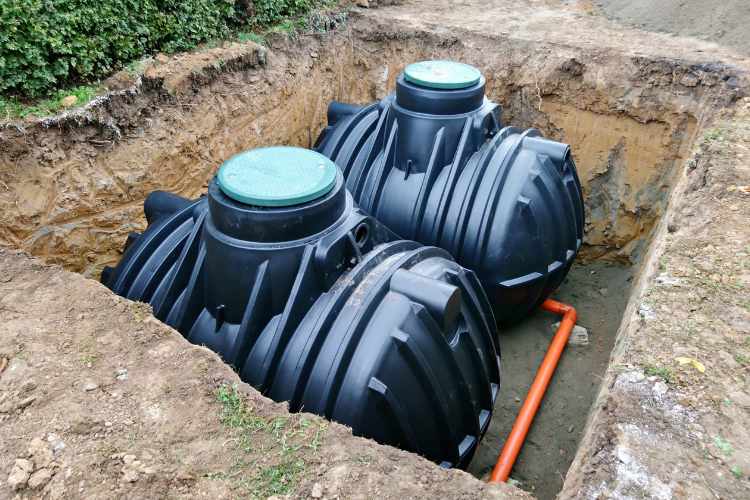What is rainwater harvesting? Advantages and disadvantages of rainwater harvesting
Rainwater harvesting is a very popular way to collect extra water for your home, especially in America where people utilize storage tanks to collect the rainwater and supply hundreds of gallons of water for outdoor use. These practices are also beneficial to the environment.
In this article, we will discuss, about rainwater harvesting As well as the Advantages and disadvantages of rainwater harvesting.
What is Rainwater harvesting?
Rainwater harvesting refers to collecting rainwater as it runs off a roof by placing storage tanks above ground or underground for many outdoor applications. This process is very common and popular in areas of gardening as well as where drought is a threat. This stored rainwater can be used for non-portable applications such as washing cars, gardening, and watering a lawn. It can also be portable if a water filtration system is connected between a storage tank and a home.
Lets through light up some common advantages and disadvantages of rainwater harvesting.
RELATED – REASONS WHY MEDICAL INSURANCE DOESN’T COVER DENTAL
Advantages of Rainwater harvesting
- Good for the environment
The foremost advantage of rainwater harvesting is that it prevents rainwater from having a negative effect on soil such as decomposing soil aggregates and eroded sediment. It also protects water sources from chemicals, sediment, and debris present in the rainwater by collecting it before reaching the ground. Rainwater harvesting is also very effective in saving energy as it can be used for outdoor applications that do not require filtration such as car wash, gardening etc.
- Saves Money
Rainwater harvesting helps you in saving money on water bills by providing an efficient amount of water for your outdoor activities. In case you have installed a whole-house water filtration system, you can also save money on your filtration system’s maintenance by rainwater harvesting.
- Helpful in case of drought
Areas, where drought is common such as California, Montana, North Dakota, and South Dakota, can greatly benefit from rainwater harvesting for daily applications. As there is less chance of rainwater entering groundwater in Urban areas due to sidewalks and roads, rainwater harvesting can prevent water from being wasted.
- Easy to Install
Rain barrels and above-ground water storage tanks are easy to install by following these steps- locate the area, ass connections, prepare the ground, connect the barrel to the downspout, place the barrel, and last divert the overflow.
- Ideal for Outdoor applications
Rainwater has various benefits for outdoor applications such as it will be easier on your car’s paint than tap water. The main reason behind it is that rainwater does include salts, chemicals, and minerals so it would be easier to wash your car without harming its paint.
Disadvantages of Rainwater harvesting
- Can be expensive to maintain
The maintenance cost of the storage tank can be one of the disadvantages of rainwater harvesting. it requires proper cleaning once every 6 months to once every 5 years. If your tank is not installed properly then its repair can make a hole in your pocket. An unstable or unlevel tank can also cause cracks on the exterior of the tank. The stored water also has a risk of freezing and damaging the tank if the temperature drops below freezing.
- Can possess contamination risks
When rainwater runoff from the rooftops, it may contain lead and other elements that possess contamination risks. Although rainwater can be beneficial for the growth of plants but if it contains lead and other harmful elements then it can also cause them harm. You can test the rainwater with some water test kits. If you want to use rainwater in portable applications such as drinking and cooking, then you must think about installing a water filtration system for your safety.
- High initial cost
Although rainwater harvesting can benefit you in saving cost in the long run they do have a high initial cost such as installing a storage tank, rainwater harvesting system etc. Every time you want to move or replace your rainwater harvesting system, you have to do these initial expenses.
- Storage limits
Rainwater harvesting is only effective when you use large-capacity storage tanks. And these tanks have a high cost of installation and maintenance. If you want to save the cost and get a smaller storage tank then your storage limit can be a big disadvantage for you.
- Unpredictable collection amount
It is quite challenging to predict the weather for rainwater harvesting. it is common that sometimes your storage tank will be inefficient to collect water in heavy rainfall and sometimes, there will be no enough rainfall to fill your large storage tanks.
Conclusion
Overall, there are some advantages and disadvantages of rainwater harvesting. Rainwater harvesting is a very popular way to collect extra water for your home, especially in America where people utilize storage tanks to collect the rainwater and supply hundreds of gallons of water for outdoor use. These practices are also beneficial to the environment.

